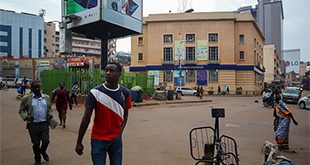From 120 to 200 road projects
Sam Mutabazi, the executive director of Uganda Road Sector Support Initiative (URSSI), an NGO that facilitates coherent and timely development and planning of road transport and urban development in Uganda, tells The Independent that one of Kagina’s strengths has been bringing in young engineers at and giving them confidence to do certain things. This crop of young engineers has taken over as project managers and has been empowered to work.
Mutabazi says Kagina has increased the number of road projects from 120 to 200, both development and maintenance. He adds that although Kagina has concentrated on maintenance due to pressure from development partners who insist on maintaining what is in place, she is doing a fairly good job.
He has Kagina’s biggest win has been in restoring public confidence in UNRA.
“She employed a strong PR machinery. Previously, the engineers were not good at saying what they are doing. In terms of public relations, they are really responsive.”
He says the responsiveness of UNRA is also reflected in the way they handle incidents such as when the Kabale-Katuna Road was heavily damaged by heavy rains almost a year ago. The responsiveness has been in large part due to UNRA’s own construction unit which went in and fixed it.
Among other things he says Kagina has done is creating a place for research and documentation. “The old UNRA did not have much information on projects.”
With all those strong points, Mutabazi says Kagina needs to bolster UNRA’s efforts on some urban roads such as the Kira Kasangati-Matugga-Wakiso ring road. He mentions the Kampala Northern Bypass in this category too.
He says the retooling of UNRA has also made it a little bureaucratic. “If you need any information especially if you are a researcher, it might be difficult.”
Mutabazi also says Kagina listens a lot to development partners who may not have the goodwill of the country.
Chinese dominance must end
Pathias Akabanjuna, a Construction Management Professional, told The Independent that the delivery of projects and contract administration by UNRA has slightly improved under Kagina but he still has some concerns.
“Why does UNRA continuously go ahead to sign contracts with contractors before obtaining right of way, which always leads to delays and financial penalties by the contractor (loss to tax payer)?”
He says this is important because when the contractors have idle equipment on site as a result of UNRA not giving them access to a particular part of the work, they charge damages.
Akabanjuna adds that the assumption under the contract is that the equipment is hired to do work and paid for per day.
“So each day it doesn’t work is a loss to the contractor which they transfer to UNRA because it’s not the contractor’s fault.”
He also asks, “Is it possible to put land acquisition as the first step after project design so that procurement of projects is done when at least 50% of the land has been acquired?”
Akabanjuna also raises a persistent query thrown at UNRA: The mechanism through which UNRA can ensure knowledge and skills are transferred to Ugandan companies considering the proliferation of Chinese contractors even in maintenance of upcountry roads and small bridges. Related to this are the restrictions put in place to ensure local content.
He is also interested in knowing the successes and challenges of centralising design and construction supervision of projects, a departure from the model of the old UNRA where consultants did most of this work.
For Kagina and UNRA, therefore, it looks like it is still a long road ahead in spite of the achievements they have registered so far.
 The Independent Uganda: You get the Truth we Pay the Price
The Independent Uganda: You get the Truth we Pay the Price



We have just begun Uganda will be transformed by hardworking people by the grace of God.